Resource Use and Environmental Futures
New research on the roots of American Republican environmentalism and pipeline history, a vision for Canada’s green future, and sustainability in outer space activities.
Learn more
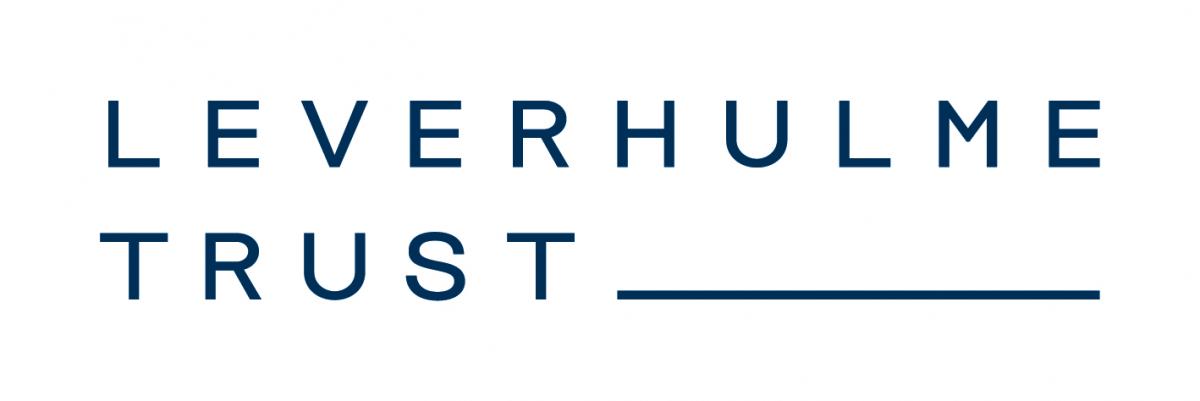
Treatied States of America: Interior Diplomacy and the Contest for (Native) American Resources
Funder: Leverhulme Trust, Major Research Fellowship (2024-27)
People: Professor Charles Prior
The geo-politics of net zero will be shaped by some of North America’s oldest diplomatic agreements. Indigenous resurgence since the 1970s gives historic treaties new prominence in questions ofland and resources in addition to law, constitutionalism, and the jurisdiction of states. This cross-disciplinary study will place archives into dialogue with contemporary Indigenous legal and political thought to frame a new account of the interior diplomacy that formed the US and will influence debates on energy, resources, and the sovereignty of Native Nations. It will illustrate the powerful connections between colonial pasts and the post carbon future.
What Would Nixon Do? The Republican Roots of American Environmentalism
Funder: Leverhulme Trust, Major Research Fellowship (MRF-2018-041), 2019-22.
People: Professor Joy Porter
The greatest advances in contemporary environmental policy were made not by a Democrat, but by a Republican – Richard M. Nixon. However, since the Nixon years, successive Republican administrations have undermined some of the most important environmental safeguards achieved in the contemporary era. The Trump administration that began in 2017 was a case in point.
President Trump’s rise to power was fuelled by two major impulses: a top-down urge to access resources on the 28% of American land that is federally-owned and a bottom-up push for the restoration of blue-collar jobs linked to extractive industries such as coal, oil, and gas. Despite natural scientists and environmentalists sounding the alarm, Republicans remain wary of what is perceived as a ‘pro-China’ scientific climate change consensus.
The Biden administration’s lack of support for the $9 billion Keystone XL pipeline is viewed by many Republicans as a geopolitical failure of benefit to Russia and China. Indigenous groups continue to protest, including in American courts, against damage to ecosystems caused by extractive industries. A recent example is protest against risks to water as a result of the planned $9 billion upgrade and re-routing of the Enbridge Line 3 pipeline that runs through the ‘land of 10,000 lakes’ in northern Minnesota. Indigenous groups have also taken to American courts to prevent planned oil and gas drilling on the millions of acres at Bears Ears and Grand Staircase-Escalante National Monuments, the Arctic National Wildlife Refuge and in the Gulf of Mexico.
This project engages with Republican traditions on an interdisciplinary basis. It asks the question some conservatives ask themselves – ‘What Would Nixon Do?’ and applies it to Republican environmental policy today. Using Nixon’s innovations in Indian policy as a lens, it sets out to recover the Republican party’s remarkable and positive legacy of environmental leadership, raise the profile of conservative and Republican traditions of stewardship and protection of American land, and prompt new discourse on the extent to which any future Republican administration will deviate from these ideals.
Republican commitments to ‘clean water and clean air’ provide a platform for examination of new and under-researched archives held in Alaska, California and New Mexico. The research sets out to bridge divides between environmental and Indigenous groups and the conservative and Republican base at a time when the need is acute.
Canada’s Green Challenge (McGill-Queen’s University Press, 2023)
People: Professor Joy Porter
Canada’s Green Challenge is a synoptic, interdisciplinary analysis of Canada in environmental context. It presents ideas and information with a direct link to any Canadian’s personal concerns, be they the relationship between Canadian health and air and water quality, the reasons behind the gap between Canada’s environmental self-image and reality, the future of Canadian cities, or the types of lifestyles likely to be adopted by Canadian children.
The book seeks to meaningfully advance existing debates for researchers, policy-makers, students, and the reading public interested in Canadian cultural, economic, legal, political, agricultural, First Nations, environmental and future-oriented themes including Canada’s role in space.
Written in accessible language and engaging with the most current research, this book explores the historical, intercultural, legal and political dynamics that have resulted in Canada’s environmental context today. It eschews the partisan and instead seeks to advance debate beyond the bounds of the solution-sets advanced by the political left and right. Its point of departure is the sober recognition of the reality of mining as a national economic imperative, existing Canadian environmental policy alignment with that of the US, and the necessity for broad-based change to address environmental stress. Its analyses confront the reality of Canada as one of the world’s largest exporters of minerals and metals, selling over sixty different mineral commodities to over one hundred countries.
Canada’s Green Challenge argues that despite their vital, ongoing efforts to protect Canadian ecosystems, it is unreasonable to look to Canada’s First Nations to solve the climate crisis. However, a respect for balance that has long been advocated within a number of Indigenous traditions is likely to be central to the task of equipping Canada for a sustainable future. Renewables are an important and well-publicized part of such a re-balancing, but it is vital they do not eclipse less seductive solutions geared towards lowering both waste and the consumption of energy in all forms.
Therefore, this book’s concluding chapters evaluate possible Canadian futures that take such a re-balancing seriously. They explore revolutionary changes afoot within agriculture, the drive for ‘smart cities’ embodied in plans for Google’s Quayside site in Toronto, issues surrounding Canadian population levels and increasing Canadian life-spans, as well as the potential impact of Generations X and Alpha as they respond to a technologically immersive world under climate stress. This book’s final chapters examine Canada’s role as custodian of 20% of the world’s freshwater resources and the challenges the nation will confront in future decades as it expands its reach to encompass new environments in outer space.
A preliminary to this book has been published as, ‘Who Fights for Canada as the Climate Changes?’, The Fourteenth Eccles Centre for American Studies Plenary Event at the British Association for American Studies Annual Conference, 2019.
Green Toolkit for a New Space Economy: PI, Matthias Wong (PDRA Digital)
Funder: UK Space Agency via SPRINT (SPace Research and Innovation Network for Technology) (OW131743BZ14S), 2022.


People: Dr Matthias Wong

Media:
- News feature on the ‘Green Toolkit’
- Green Paper for the Sustainability of the UK’s Space Economy
- Press release from SPRINT
This project explores the design of a Toolkit for the UK space sector that promotes a circular economy model and incorporates socio-cultural values into traditional environmental impact assessments.
It brings together academic collaborators in Law, Physics, History and Indigenous Studies, and Cybersecurity and User Design from the Universities of Edinburgh, Southampton, Hull, and York St John. In partnership with Interstellar Space Technologies Ltd, the Toolkit will help space industry (SMEs in particular) navigate the regulatory landscape, and nudge businesses towards choices that reduce their adverse socio-cultural and environmental impact. It will promote environmental and social equity in a format familiar and legible to business and regulatory audiences, while also providing a tool to help SMEs become more competitive by accrediting their socially responsible choices.
Via a unified platform that integrates a range of complex standards across agencies, industries and civil society, the Toolkit will encourage the adoption of a circular economy model in the design and operation of space activities, paying special attention to reuse and repurposing of end-of-life assets.
Research Programmes
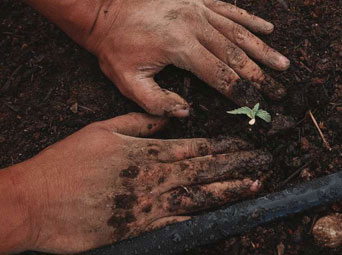
Connecting Cultures
A collaborative project revealing how historic sites can position themselves as global crossroads, enabling multiple global publics to connect their lived experience with them.

Diplomacy and Treaties
International collaboration revealing globally significant cultures of diplomacy between the Crown, the Haudenosaunee and their neighbours in North America.
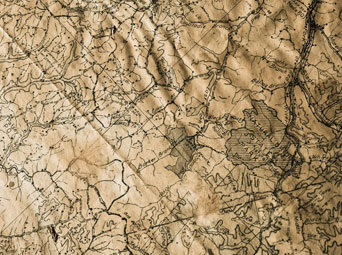
Digital Storytelling
Digital resources that involve the public, advance research, energise teaching, and drive knowledge exchange, built in partnership with the UK’s foremost research software engineers.
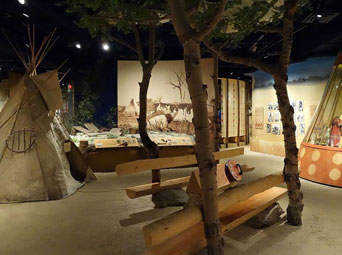
Resource Use and Environmental Futures
Water Cultures in Conflict at Pebble Mine, Bristol Bay, Alaska
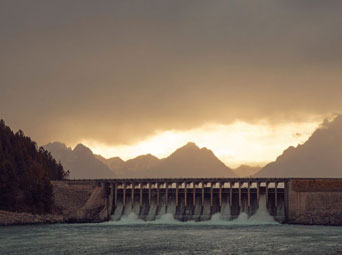
Political Ecologies
Timely interventions that examine the power relations between Indigenous actors and the world’s most pressing environmental challenges.

Completed Projects
Timely interventions that examine the power relations between Indigenous actors and the world’s most pressing environmental challenges.


